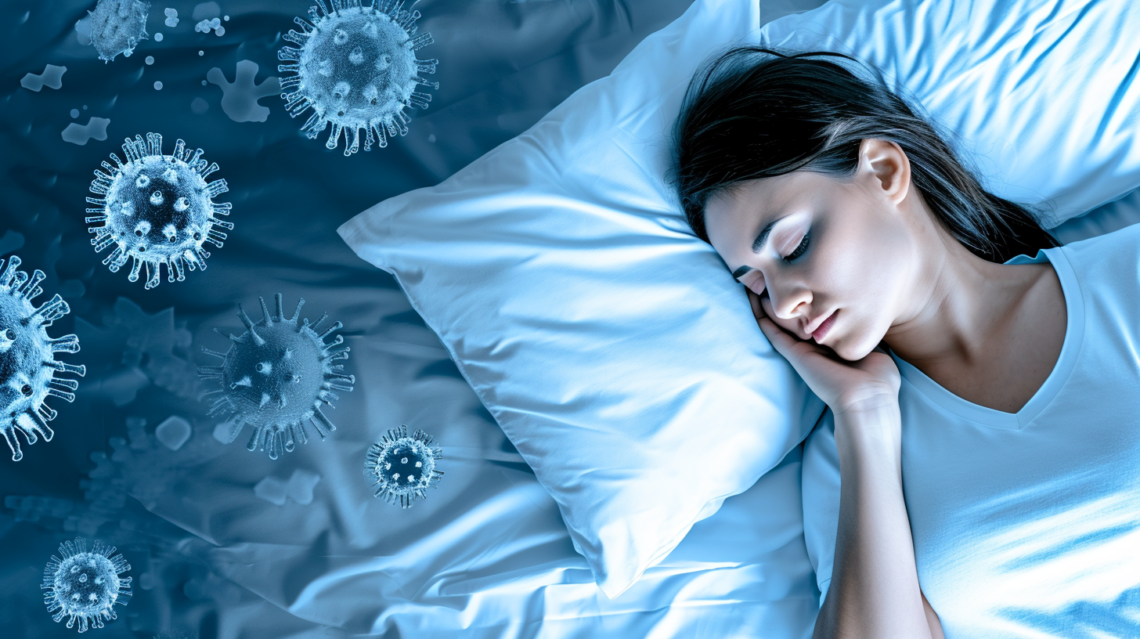
Sleep Deficiency and Immunity
A critical yet often overlooked component influencing immunity and healing is sleep. This extensive exploration delves into the intricate relationship between sleep deprivation and the immune system, highlighting its impact on the body’s ability to combat infections such as COVID-19, the common cold, and influenza, as well as its role in post-surgical recovery.
Understanding the Immune System: A Brief Overview
The immune system, a complex network of cells, tissues, and organs, defends the body against invaders such as viruses, bacteria, and other pathogens. It consists of two primary components: the innate immune system, providing immediate response to foreign threats, and the adaptive immune system, which develops a more targeted defence over time.
The Science of Sleep: More Than Just Rest
Sleep, a vital, often undervalued aspect of health, plays a crucial role in various bodily functions, including the immune response. The typical adult requires 7-9 hours of sleep per night, as recommended by health professionals. During sleep, the body undergoes numerous restorative processes, crucial for maintaining optimal health.
The Detrimental Impact of Sleep Deprivation on Immunity
- Altered Immune Response: Sleep deprivation can disrupt the balance of immune cells, notably T cells, which are pivotal in fighting infected cells. Research indicates that lack of sleep can reduce the effectiveness of T cells, impairing the body’s ability to fend off pathogens.
- Inflammation and Chronic Disease: Chronic sleep loss is linked to heightened inflammatory responses, potentially leading to chronic conditions such as heart disease and diabetes, which further compromise immunity.
- Vaccine Efficacy: Adequate sleep is vital for the effectiveness of vaccines. Studies suggest that sleep deprivation around the time of vaccination can reduce the body’s response, making vaccines less effective.
Sleep Deprivation and Infectious Diseases: COVID-19, Cold, and Flu
- COVID-19: The ongoing COVID-19 pandemic has underscored the importance of a robust immune system. Sleep deprivation may worsen the prognosis for individuals infected with the virus, as a weakened immune response can lead to severe complications.
-
Common Cold and Influenza: Similarly, inadequate sleep can increase susceptibility to common viral infections like the cold and flu. A study conducted by the University of California found that individuals who slept less than 6 hours were more likely to catch a cold than those who slept more.
The Role of Sleep in Healing and Post-Surgical Recovery
The intricate relationship between sleep and the body’s healing processes, particularly after surgery, is a critical area of focus in medical science. The role of sleep in recovery extends far beyond mere rest, involving a complex interplay of biological processes that significantly impact post-surgical outcomes and the overall healing journey.
Conversely, sleep deprivation can have detrimental effects on the healing process. Lack of sleep can lead to a decrease in the production of growth hormones, hampering the body’s ability to repair itself. This slowdown in the healing process can extend hospital stays and increase the risk of post-operative complications. Moreover, sleep deprivation can lead to an imbalance in the body’s inflammatory response. This imbalance can result in either insufficient inflammation, hindering the healing process, or excessive inflammation, leading to complications such as swelling, pain, and further tissue damage.
The immune system is also compromised by inadequate sleep. A weakened immune response increases the risk of infections, which can be particularly dangerous in a post-surgical context. Surgical site infections not only delay recovery but can also lead to more severe health issues, requiring additional treatments or even further surgeries.
Strategies for Enhancing Sleep in Post-Surgical Patients
Given the importance of sleep in healing and recovery, it is vital for healthcare providers and patients to prioritize sleep after surgery. Hospitals and healthcare facilities are increasingly recognizing the need for sleep-friendly environments, implementing measures to minimize disturbances and create a more conducive environment for rest. The same should be done when recovering post-operatively at home. This includes establishing a regular sleep schedule, minimizing noise and light in the sleep environment, and avoiding caffeine and other stimulants. Additionally, managing pain effectively is crucial, as pain can be exacerbated by lack of sleep, and, in turn, significantly disrupt sleep even further.
The intertwining of sleep, immunity, and healing forms a critical triad in maintaining health and combating illness. As healthcare professionals and individuals, acknowledging and addressing sleep deficiency is paramount in the pursuit of optimal health, particularly in the context of infectious diseases and recovery processes.
While sleep is often relegated to a lesser priority in our busy lives, its profound impact on the immune system and healing capabilities necessitates a re-evaluation of its importance. By fostering better sleep habits, we not only strengthen our defences against illnesses but also enhance our body’s innate ability to heal and recover.

